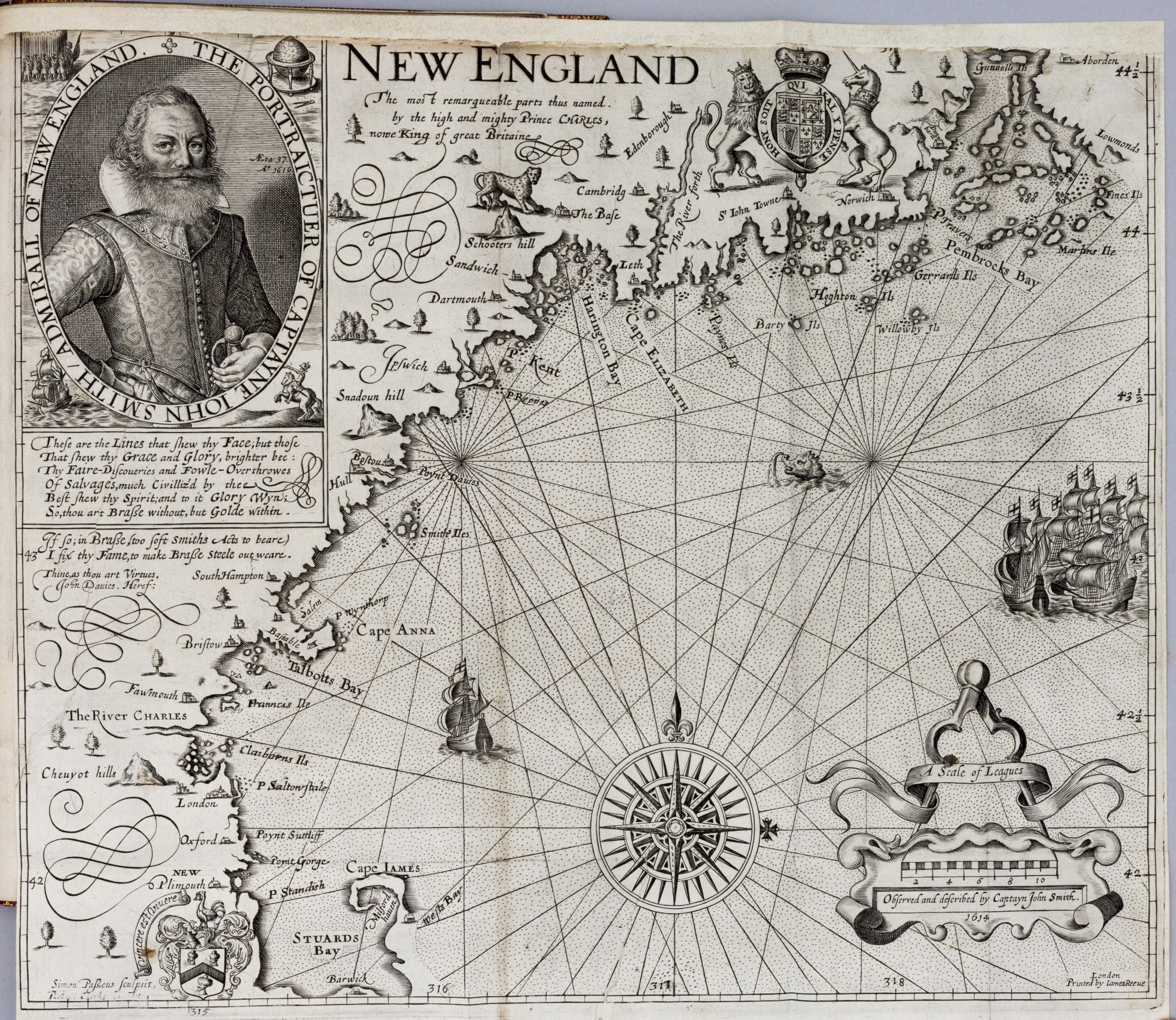
London: E. Blackmore, 1632
[S.L.] I [Smith, J – 1632] fol.
Puritans felt that Protestant reform under Elizabeth was too moderate and objected to certain ecclesiastical practices, such as wearing clerical vestments and kneeling to receive Communion. When James I dismissed their grievances and some were deprived of their positions, immigration to the new world, especially to Virginia and to New England, was a result. The soldier John Smith (1580-1631), the author of this work, governed Virginia between 1607 and 1609. The book, first published in 1624, is largely a collection of three writings roughly contemporaneously with his time there. Smith thought that the first stage of colonisation required soldiers and military discipline to secure the settlement, but that they should give way to families and communities as soon as it was feasible. Only the emigration of a cross-section of English society would permit the development of towns and communities recognizably English in character and with a strong moral core. The Puritans would have been ideal for the purpose. Puritanism was a formative element of early American life which gave Americans a sense of history as participants in a progressive drama under divine direction, and laid the foundation for the religious, intellectual and social order of New England.